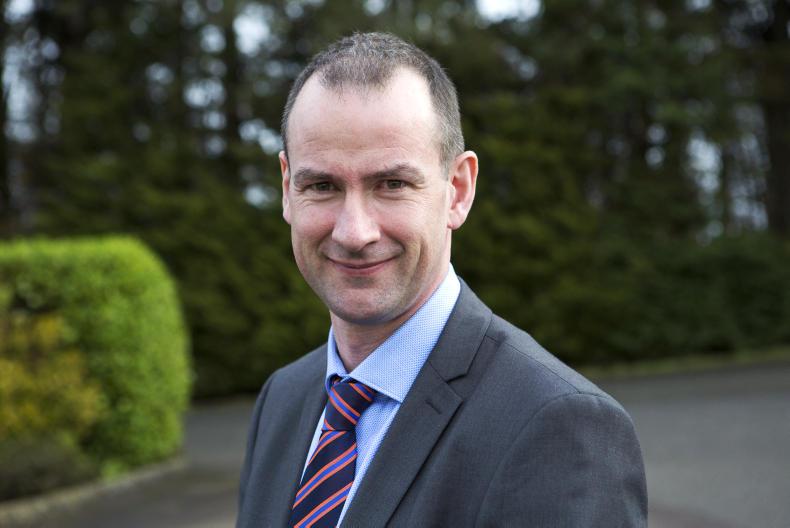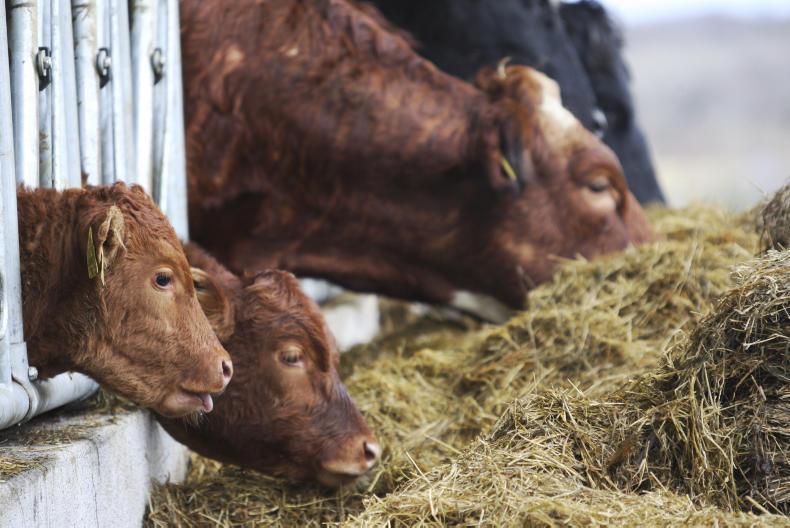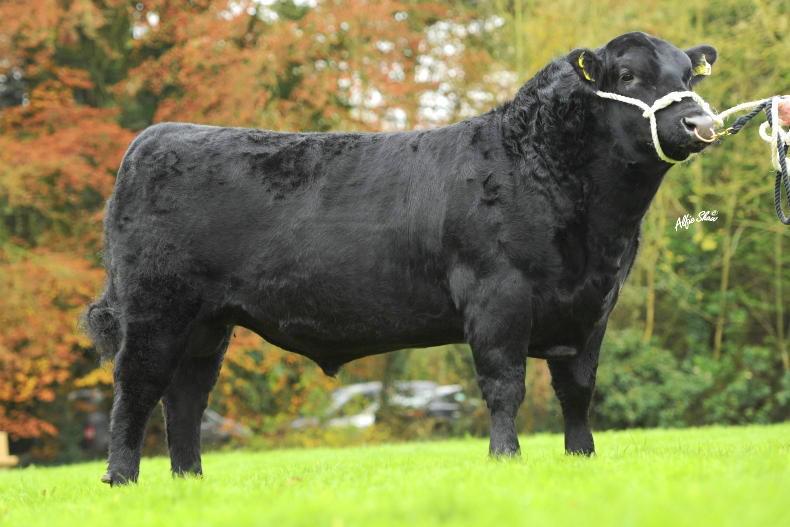The ICBF, its structure and its role in the BDGP scheme came in for severe criticism from farmers attending the Beef Summit in Ballinasloe.
Multiple farmers questioned technical director Andrew Cromie about the ICBF structure and corporate governance, as well as the influence of dairy interests over beef interests on the board. They also criticised a lack of farmers on the board.
The Irish Farmers Journal put those concerns to ICBF chief executive Seán Coughlan this week.
“The board structure was agreed back 20 years ago as part of the setup of ICBF. At that time, over €2m of share capital [cash] was put up by the industry shareholders to help establish the ICBF infrastructure,” he said.

Sean Coughlan, ICBF chief executive. \ Donal O'Leary
“There are four groupings of shareholders in ICBF. Eighteen per cent is owned by the herdbooks (three ICBF board seats), 18% by the AI companies (three seats), 18% by the milk recording organisations (three seats), and 46% by farmers directly (six board seats),” said Coughlan.
Two of the herdbook seats are currently held by the Irish Holstein Friesian Association, while the third is held by the Charolais society.
The three AI company seats are held by Progressive Genetics, Munster and the National Cattle Breeding Centre (NCBC) chief executive. Munster and Progressive also hold the three milk recording seats.
The six farmer seats on the board are held by the IFA (four) and ICMSA (two). They are occupied by Angus Woods, Kevin Kinsella, Michael Doran and Seán O’Leary of the IFA and Tim Fitzgerald and Tom Wilson of the ICMSA.
“The Department of Agriculture who, on the one hand don’t hold any shares, but on the other hand do provide significant funding to ICBF, also have a seat on the board,” added Coughlan.
Of the 16 current board members, 11 are farmers.
The ICBF does not control who sits on the board, according to its chief executive, who said that is a matter for shareholders.
“The board is a representative board, with each grouping of shareholders having nominating rights as to who should represent them on the board,” Coughlan said. “The herdbooks decide who their representatives are, and likewise for the other groupings. It allows each group to take responsibility for their representation.”
Read more
Opinion: debate has to be based on facts
Not time to ‘slash and burn’ BDGP – Creed
Beef Summit a line in the sand for the sector
The ICBF, its structure and its role in the BDGP scheme came in for severe criticism from farmers attending the Beef Summit in Ballinasloe.
Multiple farmers questioned technical director Andrew Cromie about the ICBF structure and corporate governance, as well as the influence of dairy interests over beef interests on the board. They also criticised a lack of farmers on the board.
The Irish Farmers Journal put those concerns to ICBF chief executive Seán Coughlan this week.
“The board structure was agreed back 20 years ago as part of the setup of ICBF. At that time, over €2m of share capital [cash] was put up by the industry shareholders to help establish the ICBF infrastructure,” he said.

Sean Coughlan, ICBF chief executive. \ Donal O'Leary
“There are four groupings of shareholders in ICBF. Eighteen per cent is owned by the herdbooks (three ICBF board seats), 18% by the AI companies (three seats), 18% by the milk recording organisations (three seats), and 46% by farmers directly (six board seats),” said Coughlan.
Two of the herdbook seats are currently held by the Irish Holstein Friesian Association, while the third is held by the Charolais society.
The three AI company seats are held by Progressive Genetics, Munster and the National Cattle Breeding Centre (NCBC) chief executive. Munster and Progressive also hold the three milk recording seats.
The six farmer seats on the board are held by the IFA (four) and ICMSA (two). They are occupied by Angus Woods, Kevin Kinsella, Michael Doran and Seán O’Leary of the IFA and Tim Fitzgerald and Tom Wilson of the ICMSA.
“The Department of Agriculture who, on the one hand don’t hold any shares, but on the other hand do provide significant funding to ICBF, also have a seat on the board,” added Coughlan.
Of the 16 current board members, 11 are farmers.
The ICBF does not control who sits on the board, according to its chief executive, who said that is a matter for shareholders.
“The board is a representative board, with each grouping of shareholders having nominating rights as to who should represent them on the board,” Coughlan said. “The herdbooks decide who their representatives are, and likewise for the other groupings. It allows each group to take responsibility for their representation.”
Read more
Opinion: debate has to be based on facts
Not time to ‘slash and burn’ BDGP – Creed
Beef Summit a line in the sand for the sector











SHARING OPTIONS